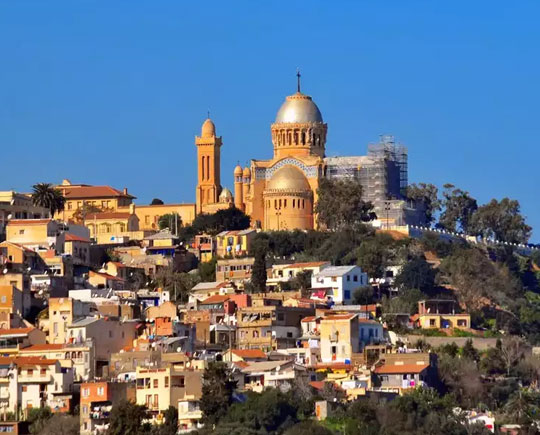Algeria (DZ)

1. Obtain a valid passport with at least six months of validity remaining from the date of entry into Algeria.
2. Fill out the visa application form, which can be downloaded from the Algerian consulate website or obtained in person at the consulate.
3. Prepare the required documents, including a recent passport-sized photo, proof of travel arrangements (such as flight itinerary), proof of accommodation in Algeria (such as hotel reservation), and proof of sufficient funds for the duration of your stay.
4. Submit the completed application form and supporting documents to the Algerian consulate or embassy nearest to you. Some consulates may require an in-person interview.
5. Pay the visa application fee, which varies depending on your nationality and the type of visa you are applying for. Fees can be paid in cash or by money order.
6. Wait for your visa application to be processed. Processing times can vary, so it is recommended to apply well in advance of your planned travel dates.
7. Once your visa is approved
1. Algeria eVisa Application Portal: https://www.visa-algerie.com
2. Algeria Tourist Visa Online Application: https://www.algeriaembassy.org/visa-application
- Valid passport
- Passport-sized photos
- Completed visa application form
- Proof of accommodation (hotel reservation, invitation letter)
- Travel itinerary (flight reservation, travel plans)
- Proof of sufficient funds (bank statements, sponsorship letter)
- Travel insurance
- Copy of previous visas (if applicable)
- Medical certificate (if required)
- Letter of employment or school enrollment
- Proof of ties to home country (property ownership, family ties)
- Additional documents requested by the embassy or consulate
Ensure all documents are up-to-date and meet the specific requirements of the Algerian visa application process. Contact the embassy or consulate for any further clarification or assistance.
To extend your visa in Algeria, you will need to follow these steps:
1. Visit the local immigration office or the nearest police station at least one month before your current visa expires.
2. Fill out the visa extension application form and provide any required documents, such as a valid passport, proof of funds, and a letter explaining the reason for your extension request.
3. Pay the visa extension fee, which varies depending on the length of the extension.
4. Wait for the immigration authorities to review your application. This process can take several weeks, so be sure to apply well in advance of your visa expiration date.
5. If your extension is approved, you will be issued a new visa with an extended validity period.
It is important to note that visa extensions are not guaranteed and are subject to the discretion of the immigration authorities. It is recommended to comply with all visa regulations and deadlines to avoid any issues with your visa status in Algeria.
Travelers to Algeria are required to have a valid passport with at least six months validity beyond the date of entry. Visas are required for most nationalities and can be obtained from Algerian embassies or consulates prior to arrival. Additionally, travelers may be required to provide proof of a return or onward ticket, as well as proof of sufficient funds for their stay.
There are no specific medical exams or vaccination certificates required for entry into Algeria. However, it is recommended that travelers be up to date on routine vaccinations such as measles, mumps, and rubella (MMR), diphtheria-tetanus-pertussis, varicella (chickenpox), and influenza.
It is also advisable to consult with a healthcare provider or travel medicine specialist at least four to six weeks before travel to ensure that all necessary vaccinations and precautions are taken based on individual health conditions and travel plans. Additionally, travelers should be aware of any current health alerts or advisories for Algeria before
Travelers to Algeria should be aware of the following local laws and customs:
1. Alcohol consumption is strictly prohibited in public places. It is only allowed in licensed bars and restaurants.
2. Public displays of affection should be kept to a minimum, as they are not culturally accepted.
3. It is important to dress modestly, especially when visiting religious sites or rural areas. Women should cover their shoulders and knees.
4. Photography of government buildings, military installations, and police officers is prohibited.
5. It is considered disrespectful to refuse food or drink that is offered to you by a host.
6. It is important to greet people with a handshake and maintain eye contact during conversations.
7. Homosexuality is illegal in Algeria and can result in severe penalties.
8. It is important to respect Islamic customs and traditions, such as fasting during Ramadan.
By being aware of and respecting these local laws and customs, travelers can have a more enjoyable and culturally sensitive experience in Algeria.